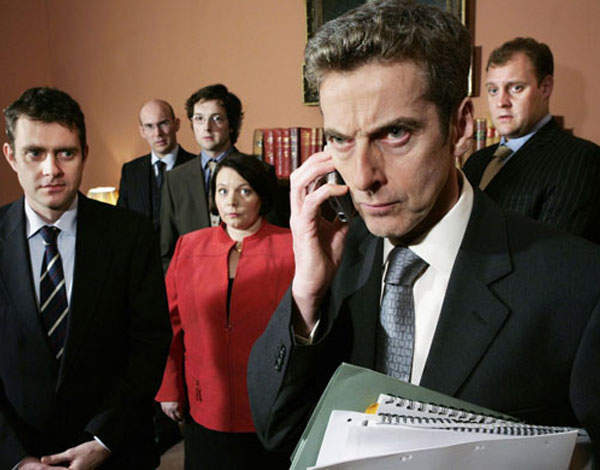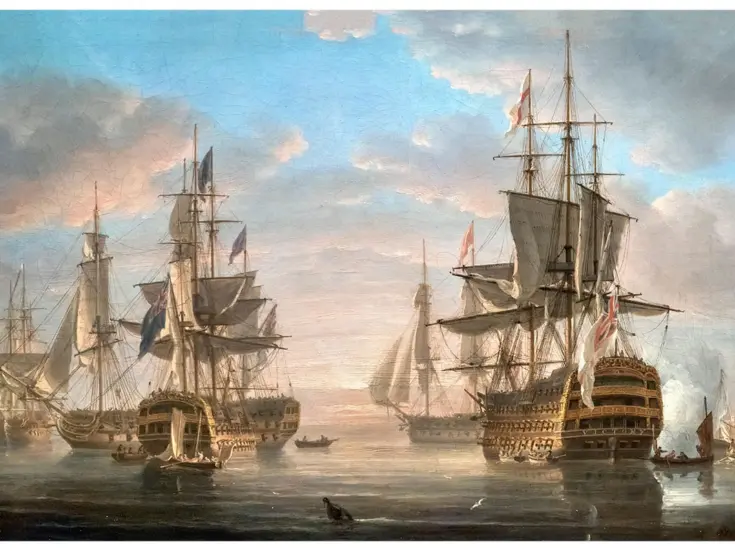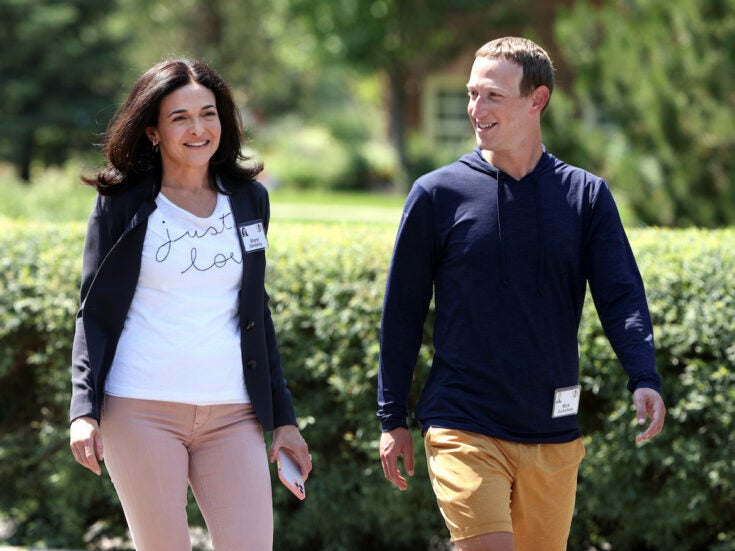

What do Birgitte Nyborg and Josiah Bartlet have in common? They are both fictional political leaders — in Borgen and The West Wing — and both objects of mild obsession to the British political class.
The reason is obvious: despite their human failings, they are decent people trying to do the right thing, which is how politicians largely see themselves. British popular tastes, however, prefer mean and heartless one-dimensional caricatures: Spitting Image, House of Cards, The Thick of It (pictured above). The British public are unable or unwilling to give our politicians any benefit of the doubt.
The Brewery at freuds, our division focusing on developing and articulating purposes for companies and individuals, recently published an index of Britain’s heroes, based on polling research.
It was interesting for a number of reasons, one of which was how incredibly badly our political leaders did. Michael Gove, a man I like and admire even if I don’t always agree with him, came last out of 84 names. When asked whether they considered him to be a hero, more people chose Gerry Adams and Russell Brand. There were seven politicians in the bottom ten and none in the top ten. Even Boris Johnson came 55th.
We asked the question about heroes because it’s a particularly intimate choice, a clear public statement that you share someone’s values. Clearly, we weren’t expecting politicians to do that well, but their catastrophic performance was a surprise.
If you look behind the headlines, the reasons are clear. We asked people to rate celebrities not only on heroism, but also a number of other attributes. Three of them — courage, trust and likeability — turned out to be most closely correlated with heroism.
The three main parties’ leaders — Cameron, Clegg and Miliband — were only considered likeable by between 9 and 11 per cent of people, courageous by between 6 and 8 per cent and trustworthy by between 4 and 9 per cent. These are consistent results — consistently bad, that is. There are outliers — Boris is more likeable, David Blunkett more courageous — but they are the exceptions and not a single one of them is trusted much by anyone.
Of course, politicians in the UK have had a rough few years. The expenses scandal, during which it turned out that they had been routinely abusing the public purse for many years and were really quite cross at the suggestion that they had done anything wrong, had a devastating impact.
The credit crunch, while not the fault of the politicians directly, underlined a general sense that the elites profit at the expense of everyone else. A series of individual scandals involving particular politicians hasn’t helped, nor has their reaction to it.
An article in The Guardian by Chris Huhne last September was subtitled: ‘I’ve played my part in giving MPs a bad name, but ultimately it’s Rupert Murdoch’s media machine that corrodes the public trust.’ Whatever we may think about Mr Murdoch, he was hardly to blame for Mr Huhne’s decision to make his wife take his speeding points and then lie about it.
WINDSOR CHANGE
So what might politicians do to recover some of their mojo? One possible opportunity is also visible from the Heroes Index. Almost as surprising as the fall of the political class is the rise of the Royal Family. According to our poll, the two most likeable celebrities in Britain are the Duke and Duchess of Cambridge (but not in that order). They both joined the Queen in the top twenty heroes, and even Prince Charles doesn’t do badly at 44.
Had you asked these questions a decade ago — which we didn’t — it’s almost certain that the royal performance would have been much, much worse. That was the moment in which Tony Blair had to ‘rescue’ Her Majesty from a naïve response to the death of Diana, Princess of Wales.
So what can politicians learn from the monarch’s response? Perhaps humility. The Queen cut back her spending, increased transparency, slimmed down some of the hangers-on, clarified and modernised her mission and didn’t give a single interview, relying on deeds, not words. With a bit of recent help from William — his marriage and baby — that seems to have done the trick.
Westminster, like the Royals, is a cosy, unreformed institution that met modern values and a 24-hour media and came off worst. But its inhabitants could yet be starring in Borgen and not The Thick of It — their unpopularity as a group is not a given. To make the change, however, they first have to accept that they are part of the problem, rather than blaming their unpopularity on the press and deeply resenting the continuing impact of the expenses scandal on their finances.
We could have political heroes in Britain — I think we rather need them — but first politicians have to rebuild our trust, demonstrate their courage and learn how to be a bit more likeable.








